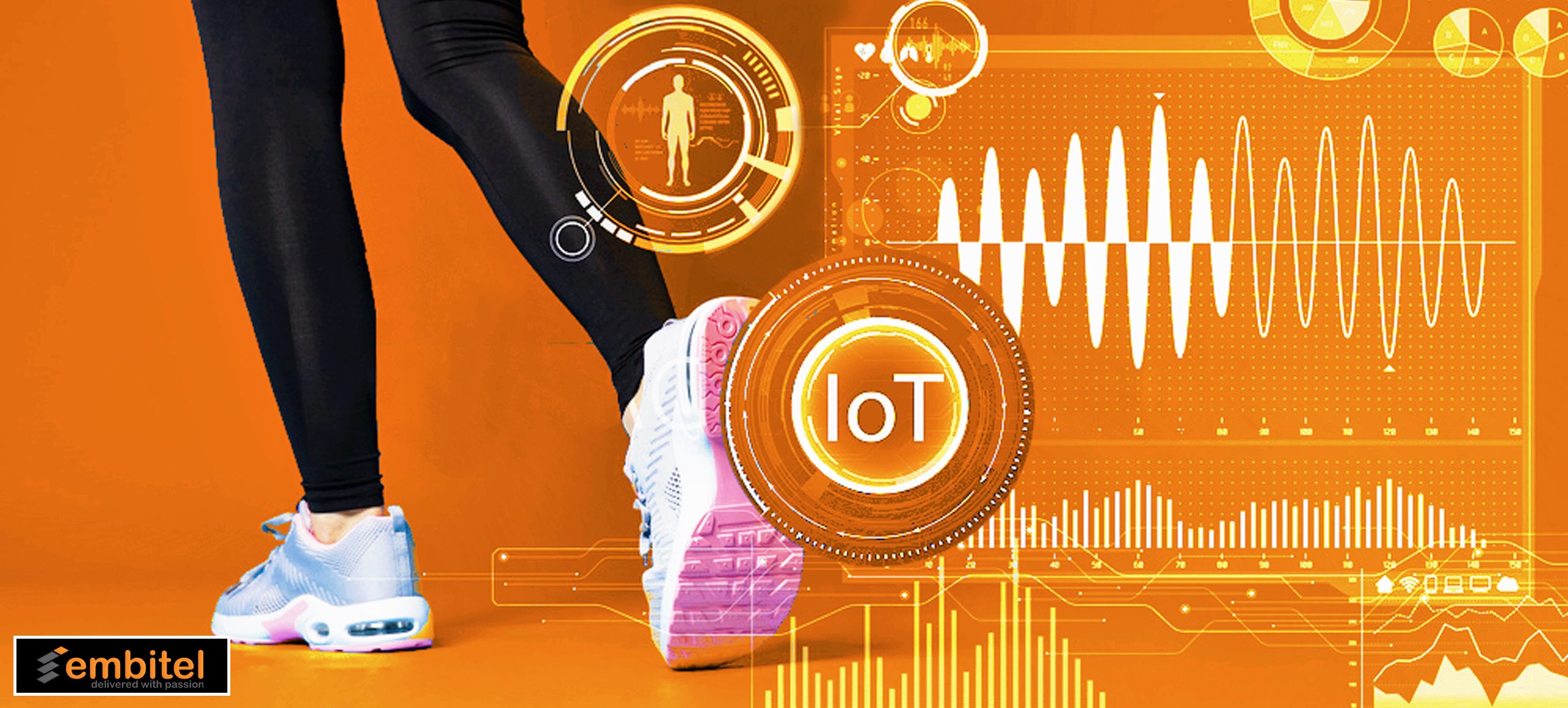The sports industry has been adapting to an increasingly digital world. The Internet of Things (IoT) has left a significant mark in the way athletes train. The method of operations of sports teams and engagement with fans have also transformed due to the integration of IoT in sports.

IoT has had a notable impact on gaming as well. Social distancing during quarantine has made it difficult for us to play outdoor sports. However, the second-best thing to playing outdoor games is playing indoor games, especially mobile and console games. IoT has made it possible for online and mobile games to be played solo or with a group of people from across the room or anywhere across the globe.
How IoT has Revolutionized the Gaming Industry
IoT in gaming has catapulted online and mobile gaming to new heights over the past few years as gaming has transformed from a solitary pursuit to social activity. Gone are the days when only a few could afford to buy video or console games and invite a friend over to play for a couple of hours at home. Nowadays, anyone and everyone, from kids to adults can afford to indulge in a few hours of stress-relieving games whether it is played on the mobile or console.
IoT in gaming industry has helped game developers, designers, and manufacturers make use of the advanced software and hardware available in smartphones to develop a plethora of IoT gaming projects, market them to a wider audience, and enhance their gaming experience.
How IoT in Gaming Works
You can connect your gaming device, say a console, desktop, laptop, smartphone, or tablet to a friend’s gaming device via IoT and continue to play games with him or her at any time and from anywhere.
- The devices have chips and sensors that are used to connect to other devices via the internet.
- The sensors in the devices collect data and transmit it to the cloud platform through a secure gateway.
- The collected data of user experiences is then analyzed to help developers and manufacturers keep track of the online gaming activities, make improvements to the games, and also penetrate other aspects of a gamer’s life to bring about a wholesome effect.
Online casino games are a fan favorite and a good example of IoT in gaming.
Modern smartphones have hardware and software such as pressure and touch sensors, accelerometers, heart rate monitors and cameras that collectively gather data on user experience. Analysis of this information yields valuable insights on how customers behave while playing online games. Just like casinos that assess reactions of players through their facial expressions, mobile devices can estimate player satisfaction during a game, without compromising on player privacy.
An example of IoT in mobile gaming is the Zombies, Run! mobile game. The game connects with the player’s fitness tracker and smartphone to bring entertainment into a person’s cardio workout wherein he or she is fighting zombies while also making strides in their morning workout.
Similarly, IoT and gaming have made learning easier for children who like it when some form of fun is incorporated into their academic lessons. The same goes for learning apps that incorporate games into the user’s lessons by offering tests, competitions and rewards to keep the learning process progressive and engaging.
Impact of IoT in Sports
Considering the amount of time and money invested in major sports around the world, it is certain that we can expect to see increased use of IoT technology in this domain. Here’s how IoT applications in sports are benefitting athletes, fans, and sports organizations:
Smart Stadiums
Investors are already making headway in IoT projects in sports like building smart stadiums. A couple of examples of smart stadiums include Golden 1 Center and Levi’s stadium in the US.
- A smart stadium integrates several sensors, digital signs, and cameras which are connected to both wireless and wired networks to collect and transmit data to IoT platforms.
- The collected data is then analyzed and put to better use for enhanced fan engagement and stadium maintenance.
- The stadium’s ventilation, heating, and electronic systems can be monitored and maintained via IoT sensors.
- It can also be used to conserve resources by tracking water and electricity consumption, locating empty parking spaces in the stadium, and asserting crowd control at the food and merchandise stands.
IoT Devices in Sports Equipment and Uniforms for Athletes
IoT devices in sports help ensure both athlete safety and enhanced training. For example, IoT sensors in smart insoles and smart fabrics of an athlete’s shoes can collect data on his or her training regime, performance, health, and injuries for analytics purposes.
Player development is a key area of focus and data collected by sensors worn by players can be processed to derive insights on player efficiency. This, in turn, helps to formulate effective in-game strategies.
Wearable IoT sensors provide the following types of insights:
- Effort exerted by players during a match
- Efficiency of the player and key areas to improve on
- Health of the player and recovery time needed
- Weaknesses in the body and prediction of injuries
- Patterns in player performance
The above data helps in the selection of players for each game in a strategic manner. IoT sports analytics helps trainers and coaches to customize and streamline training modules and game plans for athletes. This ensures enhanced athlete training and safety.
Moreover, sports manufacturers can use the data collected by IoT sensors to develop customized products to meet each athlete’s specific needs.
IoT sensors also help in tracking the distance travelled, speed and position of a player in a real-time game scenario. These real-time insights help the coach in guiding players and making smarter decisions when it matters the most.
An example of IoT sports equipment is the smart cricket bat being developed by Microsoft. The IoT-powered bat has a sensor that will collect data like swing speed, impact, distance and angle which will then be analyzed to get an insight into a player’s batting style.
IoT Sensors Sports Apps for Fans
IoT used in sports also benefits ardent fans around the world. Fans can use apps that will offer personalized experiences whether they are watching the game from their home or stadium.
Furthermore, collecting data on fans’ preferences can enable advertisers and sports organizations to offer fans customized product packages, thus, giving them good value for their money. This also results in better fan engagement and more ticket sales.
IoT for Sports – What to Expect
Given the revolutionary changes brought about by modern technologies in most industries, IoT for sports is a trend that will only evolve further. Therefore, it’s crucial for sports organizations to realize its potential and prepare for the change by taking steps to properly invest in IoT sensors for sports projects.
Having said that, IoT in sports is relatively new, so, sports companies shouldn’t blindly invest in IoT without doing in-depth research. This includes hiring experts in modern technologies like Artificial Intelligence (AI) and Machine Learning for designing strategies, setting aside budgets for infrastructure upgrade, updating existing systems for IoT integration, building frameworks for testing IoT solutions, educating employees on the operation and use of IoT in the workplace, and so on.
P.S. Whether it is IoT and sports or IoT and gaming, regardless of the endless possibilities presented by this modern technology, it’s important to consider cyber security/safety when it comes to sharing personal and social information. While registering to play a game, you are required to give access to your data and media, hence, always ensure the permission settings are set to safeguard your interests.



